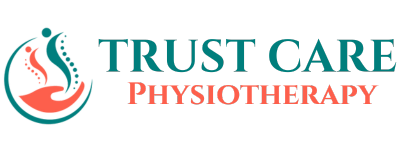Walk Better. Feel Better. Live Pain-Free.
ORTHOTICS & GAIT ASSESSMENT IN EDMONTON
Foot pain or poor alignment can affect every step you take — from your posture to your overall comfort.
At Trust Care Physiotherapy, we specialize in custom orthotics and gait analysis designed to restore balance, reduce pain, and improve the way you move.
Whether you’re recovering from an injury, managing chronic discomfort, or looking to prevent future issues, our personalized care helps you regain confidence with every step.
Trust Care Physiotherapy
ORTHOTICS & GAIT ASSESSMENT
IN EDMONTON
Support, Alignment, and Comfort in Every Step
Workplace injuries can disrupt your life in an instant, making even simple tasks feel overwhelming. Whether you’ve suffered a strain, sprain, repetitive injury, or a serious accident,
Trust Care Physiotherapy
is here to support your recovery — physically, mentally, and professionally.
Book your appointment today. Our team provides personalized care so you can move confidently and pain-free.
Common Foot and Lower Limb Issues
We Treat
Even minor foot imbalances can cause discomfort that impacts your daily life.
Early assessment and treatment help prevent chronic pain and joint issues.
Plantar Fasciitis (Heel Pain)
A common cause of heel pain, plantar fasciitis happens when the tissue connecting your heel to your toes becomes inflamed. It causes sharp pain with your first steps in the morning or after rest.
Flat Feet and Fallen Arches
When the arches of your feet collapse or don’t develop properly, the entire foot may press flat against the ground. This can lead to pain, fatigue, and improper alignment of the knees and hips.
Heel Spurs
Heel spurs are small calcium deposits that form under the heel bone. They often develop from long-term strain and can cause stabbing pain, especially during walking or standing.
Knee, Hip, and Lower Back Pain
Foot misalignment affects the joints above it. Poor posture, uneven gait, or weak foot mechanics can lead to strain and pain in the knees, hips, and lower back.
Achilles Tendonitis
Inflammation of the Achilles tendon — the large tendon at the back of your ankle — often results from overuse or tight calf muscles. It causes stiffness and swelling around the heel or lower leg.
Shin Splints
This condition involves pain along the front of the lower leg, usually caused by repetitive stress or poor foot mechanics during walking or running. Proper support and alignment can prevent flare-ups.
Overpronation or Supination
Overpronation (foot rolling inward) and supination (foot rolling outward) alter how weight is distributed across the feet. Over time, this can cause joint pain, fatigue, and increased injury risk.
OUR APPROACH TO FOOT CARE AND GAIT CORRECTION
At Trust Care Physiotherapy, we believe your recovery should be personalized, empowering, and focused on your goals, whether it’s returning to work, reducing pain, regaining mobility, or building strength.
Comprehensive Gait Assessment — We carefully evaluate your injury, work tasks, and physical capabilities.
Personalized Treatment Plans — Tailored exercises, manual therapy, education, and ergonomics to speed recovery.
Pain Management Techniques — Hands-on therapy, mobilizations, and therapeutic exercises to relieve discomfort.
Education & Footwear Advice — Guidance on proper shoes and long-term foot care to maintain your progress.
How the WCB Process Works
Step 1
Report the Injury
Discuss your symptoms, activity level, and medical history with our physiotherapist.
Step 2
Gait and Posture Analysis
We assess how your feet move during walking or running using clinical observation and measurements.
Step 3
Orthotic Recommendation
Based on your results, we may recommend custom orthotics or physiotherapy exercises to correct imbalances.
Step 4
Fitting & Adjustment
We ensure your orthotics fit comfortably and function effectively for your unique needs.
Step 5
Follow-Up Care
Regular check-ins to ensure your comfort and progress over time.
Trust Care Physiotherapy is here to support your recovery
Physically, Mentally, and Professionally.
Why Trust Care Physiotherapy for ORTHOTICS & GAIT ASSESSMENT?
Experienced Clinicians
Our physiotherapists are skilled in gait analysis and orthotic prescription.
Comprehensive, Personalized Care
We don’t just treat your feet — we look at how they affect your entire body.
Evidence-Based Treatment
Every recommendation is grounded in clinical research and experience.
Convenient, On-Site Services
All assessments and fittings are done right here in our Edmonton clinic.
Comfort-Focused Results
Our goal is simple — to help you walk, work, and live without pain.
START YOUR PATH TO COMFORT TODAY
Try an In-Clinic Discovery Session Or Try a Phone Consult
Contrary to popular belief, Lorem Ipsum is not simply random text. It has roots in a piece of classical Latin literature from 45 BC, making it over 2000 years old. Richard McClintock, a Latin professor at Hampden-Sydney College in Virginia
Foot pain shouldn’t hold you back from an active lifestyle.
Let Trust Care Physiotherapy help you move freely with professional Orthotics and Gait Assessment.
We offer a Discovery Session in-clinic or a Phone Consultation with a Registered Physiotherapist to discuss your needs and recommend the best solution.
No pressure
No obligation
Just honest guidance about your options
Trust Care Physiotherapy — Your Recovery, Our Priority
© Copyright 2025. Trust Care Physiotherapy. All rights reserved. Privacy Policy

